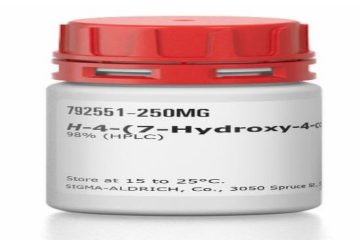Maintaining sobriety and achieving long-term recovery requires more than just abstaining from substances. Developing healthy habits can support your physical, mental, and emotional well-being, making it easier to stay on track.
1. Establish a Routine
Creating a daily routine provides structure and stability, which are crucial for addiction treatment recovery. Plan your day with activities that promote well-being, such as exercise, work, hobbies, and relaxation. A consistent routine helps you stay focused and reduces the likelihood of encountering triggers.
2. Prioritize Sleep
Getting enough sleep is essential for physical and mental health. Aim for 7-9 hours of quality sleep each night. Establish a bedtime routine, avoid caffeine and electronics before bed, and create a comfortable sleep environment to improve your sleep quality.
3. Eat a Balanced Diet
Proper nutrition is vital for recovery. Eat a balanced diet rich in fruits, vegetables, whole grains, lean proteins, and healthy fats. Avoid excessive sugar and processed foods, and stay hydrated by drinking plenty of water. Good nutrition supports your overall health and boosts your energy levels.
4. Exercise Regularly
Regular physical activity improves mood, reduces stress, and enhances overall well-being. Aim for at least 30 minutes of moderate exercise most days of the week. Activities like walking, running, swimming, or yoga can be beneficial for both your body and mind.
5. Practice Mindfulness
Mindfulness involves staying present and fully engaging in the moment. Practicing mindfulness through meditation, deep breathing exercises, or yoga can help reduce stress, improve emotional regulation, and increase self-awareness. Mindfulness can be a powerful tool for managing cravings and staying grounded.
6. Stay Connected to Support Groups
Support groups provide a sense of community and accountability. Regularly attending meetings, such as Alcoholics Anonymous (AA) or Narcotics Anonymous (NA), can offer valuable peer support. Sharing experiences and receiving encouragement from others in recovery can strengthen your commitment to sobriety.
7. Engage in Hobbies
Finding and engaging in hobbies that you enjoy can provide a positive outlet for your energy and creativity. Whether it’s painting, playing a musical instrument, gardening, or cooking, hobbies can distract you from cravings and bring joy to your life.
8. Set Realistic Goals
Setting realistic and achievable goals gives you something to work towards and helps maintain motivation. Start with small, manageable goals and gradually work your way up to larger ones. Achieving these goals can boost your confidence and reinforce your commitment to recovery.
9. Manage Stress
Stress is a common trigger for relapse, so it’s important to have strategies for managing it. Techniques like meditation, deep breathing exercises, progressive muscle relaxation, and journaling can help reduce stress. Finding healthy ways to cope with stress can prevent it from leading to cravings.
10. Build a Support Network
Surround yourself with supportive people who understand your journey and encourage your sobriety. This network can include family, friends, therapists, and peers in recovery. Regular check-ins and open communication with your support system are crucial for maintaining sobriety.
11. Avoid High-Risk Situations
Identify and avoid situations that may trigger cravings or temptations. This could include certain social settings, locations, or people associated with your past substance use. Being proactive about avoiding high-risk situations helps protect your sobriety.
12. Practice Self-Care
Taking care of yourself is essential for maintaining recovery. Engage in self-care activities that nourish your body and mind, such as taking a relaxing bath, reading a book, or spending time in nature. Prioritizing self-care helps you stay balanced and resilient.
13. Stay Informed
Educate yourself about addiction and recovery. Understanding the science behind addiction and learning about different recovery strategies can empower you to make informed decisions about your health. Staying informed helps you stay proactive in your recovery journey.
14. Volunteer or Help Others
Giving back to your community or helping others in recovery can provide a sense of purpose and fulfillment. Volunteering or mentoring can reinforce your commitment to sobriety and remind you of the progress you’ve made. Helping others can be a rewarding way to stay connected and motivated.
15. Practice Gratitude
Cultivating gratitude can improve your mental and emotional well-being. Take time each day to reflect on the positive aspects of your life and acknowledge the things you’re thankful for. Practicing gratitude can shift your focus away from negativity and enhance your overall outlook.
16. Seek Professional Help
Therapists and counselors can provide valuable support and guidance in your recovery journey. Cognitive-behavioral therapy (CBT) and other therapeutic approaches can help you address underlying issues, develop coping skills, and stay on track with your sobriety goals. Don’t hesitate to seek professional help when needed.
Implementing Healthy Habits
Integrating these healthy habits into your daily life can enhance your ability to maintain sobriety and support your overall well-being. Here’s how to get started:
1. Make a Plan
Create a detailed plan that incorporates these healthy habits. Outline specific actions you’ll take daily, weekly, and monthly to support your recovery. Having a clear plan can provide direction and keep you focused.
2. Stay Consistent
Consistency is key to making these habits effective. Practice them regularly, even when you’re feeling good. This helps establish healthy routines and ensures you’re prepared for challenging times.
3. Adapt and Adjust
Be flexible and willing to adapt your habits as needed. Recovery is a dynamic process, and what works today might need adjustment tomorrow. Stay open to trying new approaches and refining your plan based on your experiences.
4. Seek Feedback
Regularly check in with your support network and seek feedback. They can offer valuable insights and suggestions for improving your habits. Open communication with your support system enhances your recovery journey.
5. Reflect on Progress
Take time to reflect on your progress and the effectiveness of your healthy habits. Celebrate your successes and learn from any setbacks. Reflection helps you stay motivated and committed to your recovery goals.



